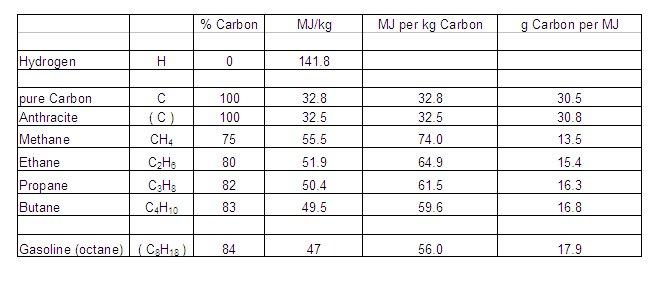There are various forms of coal and various ways of extracting the hydro-carbon materials. Some coals were better for producing town case and others were better for coke ovens producing high grade coke for coke ovens producing steel in blast furnaces. Other coals were best for gas production. The coke from a gas producing plant was not suitable for blast furnances and high grade steel.


